And there it was again – the work-related stress. Or rather, the frustration with the work system itself because Sébastian enjoyed his job.
He was a literary researcher and assistant at the University of Luxembourg, on track for a permanent professorship. But the path took an unexpected turn, and the university didn’t grant the position. Years of hard work ended in disappointment. They promised him the possibility of a permanent contract next year or definitely the year after. Sébastian didn’t wait any longer.
For a while, he was an assistant curator at the Natural History Museum in Luxembourg City. For a while, he worked independently. Now, for the past five months, he has been working as an educational assistant at the CNA – National Audiovisual Center in Dudelange. Audiovisual arts are new to him, as he previously devoted himself to everything related to literature and language. But the more workshops and exhibitions he organises, the more fascinated he becomes with this new form and its expression. After all, it’s also a language.
Sébastian shares his life story over a phenomenal pizza at Antica Bari in Dudelange. It’s Thursday evening, and we’ve just returned from a photography exhibition in Luxembourg City. Another stimulant added to the collection of an already intense week-long media workshop at CNA, where Sébastian and his supervisor, Mylène, take care of us. Day after day, from morning till evening, we work under the skilled, watchful, and sensitive eye of Uwe Martin – a photographer, journalist, and lecturer. We are developing multimedia projects we want to work on during our next homebulance journey. Our brains are overheating, creaking at the hinges as creativity, inspired by lectures and discussions.
Our brain cells don’t get to rest, even during lunchtime. Although it often starts differently. How can you go from animal sounds in different languages to discussing Luxembourgish identity shaped by the country’s trilingualism? You can. Just take a seat next to Sébastian. It’s a dangerous place because all it takes is a moment to get lost in fascinating discussions. It’s impossible otherwise. The passion and knowledge he radiates are hypnotising and captivating.
We are lucky. After the workshop, we stay a few days longer and can continue these discussions. Sébastian invites us to his place for Sunday dinner.
As the saying goes, “My home is my castle.”
In this case, the lord and master of the castle is the creative six-year-old Naël. Nothing foreshadows this when we stand in front of the two-story family home on Peace Street in Dudelange. It’s like many others in the neighbourhood, sleepy on a Sunday – equally neat, elegant, and slightly intimidating with its elegance.
In front of the house, instead of flowers, there’s a small garden filled with pebbles that match the colour of the facade. The greyness blends with black as we cross the house’s threshold – Black Sabbath is playing from the speakers. But the heavy metal sounds different here. It caresses and brushes against the ear like a big, tame cat. It is softened by the surrounding felt flowers, crayon drawings, constructions made of wooden blocks, and piles of books with large illustrations. Naël’s head is not bobbing rhythmically to the tamed sounds right now. It is hiding in the kitchen, peeking shyly from behind his mother Sarah’s skirt. The shyness lasts maybe fifteen minutes, no longer. It’s enough to go out to the back garden and give it a few balls.
The garden is actually a large lawn surrounded by a strip of fruit trees – pear, apple, plum. Between the trees and in large pots scattered in the corners, strawberries, wild strawberries, raspberries, green peas, and tomatoes grow. Everything is strategically placed so that six-year-old hands can pick whatever they like. And what they like the most is basil, which fragrant leaves Naël munches straight from the bush. If asparagus grew in the garden, they would probably share the same fate. For now, however, the parents buy and freeze asparagus in bulk for their son. And on weekend mornings, Sébastian drives to France for fresh baguettes. It only takes fifteen minutes to cross the border of the country and flavours. French baguettes are crunchier and saltier – the most delicious. When Sébastian returns, and his wife and son are still in beds, he scoops water into a cup and wakes up his family with fingers dipped in it.
Meanwhile, Sarah conjures up spaghetti with vegetable sauce and shrimp. She loves pasta in all forms and with everything. Well, maybe, except for garlic, because it gives her a headache and heart palpitations. Unusual? Like everything about Sarah, including the story of her birth.
Sarah’s mother, an Italian, didn’t know if she would give birth to a girl or a boy. Military service is mandatory for men in Italy, and that’s what the woman was afraid of. So, before giving birth, she went to Luxembourg. That’s where Sarah was born.
Sarah is quick to laugh, and when she laughs, everything around her radiates and dances – the sparks behind her glasses and the coils of her dark curls. Her petite figure exudes warmth and openness. Surprisingly, there’s still room in her for extraordinary willpower and unwavering determination. Thanks to them, Sarah graduated with a degree in pedagogy.
It was hard, especially towards the end. She divided her days between internships at one school and lectures right after. Then she rushed to internships in a completely different place and ran to another one right away. On top of that, there were writing assignments and a thesis. It was hard. Back then, there wasn’t such a comprehensive pedagogical program for teachers. She had to figure out many things on her own because teaching children is different from teaching adults, and teaching native speakers is different from teaching those who are just learning the language. It was hard, but she managed. Today, she teaches French. Since Sébastian started working at CNA, they sometimes work together, for example, on teaching language through photographs. After all, audiovisual arts are also a language; it’s just the way of expression that’s different.
Language is woven into Sarah and Sébastian’s lives, like letters into words and words into sentences. It suddenly seems obvious that language was also their matchmaker. They met while studying in Strasbourg. They started talking in French, only to realise a moment later that they were both from Luxembourg. They switched to Luxembourgish. And the rest? The rest is history. Although in two slightly different versions.
“It took me five minutes to realise that Sarah was the one. For her, it took three years,” Sébastian laughs, earning a playful nudge from his wife.
Naël has already finished his pasta (dry, with the sauce on the side, because he likes to see and know what he’s eating). Now he’s busy with his own things, creating something, contemplating something. Although seemingly absorbed in his activity, he carefully observes the adults, strategically positioned so that he can keep an eye and ear on everything from every spot. Because Naël is attentive and curious. Under his mop of light hair (his dad says there’s so much of it that it immediately gets wet from playing), an absorbent mind is constantly at work. Even when his parents think he’s already asleep. Sometimes, when he’s already tucked in bed under a blanket, he suddenly opens his eyes wide and asks, “What was a worm before it became a worm?” Sarah and Sébastian sometimes know the answer, sometimes they don’t, and then they learn together with Naël. And they read. They read, read, and read. Naël has a different book for different times of the day. One after dinner, another before bed. About what? About everything.
Now, just in case the adults forget about his presence, the six-year-old regularly reminds them of himself with a question or an urgent need to show something. Before, it was a tall tower of blocks; now, it’s a treasure box. The treasures are impressive: minerals of various shapes and colours and even a razor-sharp shark tooth. Next to them are shells. Naël loves shells. He recently brought home some snails, kept them in a box, fed them lettuce, and observed them. He was fascinated by the spiral snail shells. But his parents explained that an animal separated from its home won’t survive. A difficult choice – to have snails or to have shells? Naël continued to be fascinated, continued to observe, and continued to feed them lettuce.
Naël is curious, but a six-year-old doesn’t live by curiosity alone—a six-year-old lives to play. Sarah and Sébastian are happy because many of their neighbours have children. The children’s shared play has brought the adults closer together. COVID played a significant role in this. Sarah and Sébastian didn’t experience the forced stay-at-home as a hardship. On the contrary, they gained a lot of time together. They played together, cooked together. But as soon as it was possible, the children made up for the time spent indoors with long hours in parks and playgrounds. Parents joined their children, and this is how a bond that continues to this day was formed. They take care of each other’s children, pick them up from school. They create a small, close-knit neighbourhood community.
But ending up here in Dudelange wasn’t so obvious. Sébastian is from the north of Luxembourg, and Sarah is from the south. And although people say that you can’t move people from the south, they could have ended up anywhere else. They looked at many houses, but they liked the one in Dudelange the most. They bought it. Sébastian and Sarah were lucky because soon after, property prices started to skyrocket. Banks tightened regulations and rules for granting loans. Even Sébastian’s younger brother experienced this. Despite a stable, permanent job as a train conductor, he could only dream of a loan.
“And suddenly,” Sébastian says, “which was completely unexpected, after all my tough experiences, rough years, I start working in Dudelange, Sarah finds a job in Dudelange, Naël starts school… And it seems to me that this is what creates a home. The coming together of the right time and the right space – that’s what home is.”


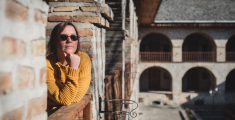
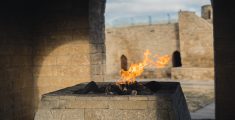






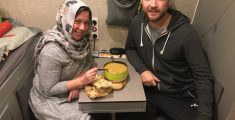
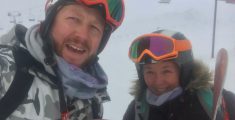

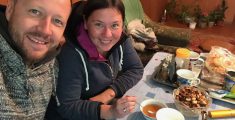

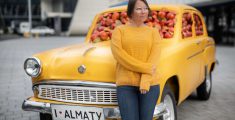
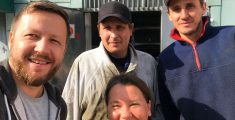


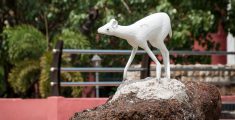

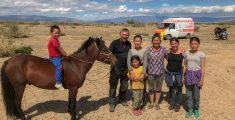
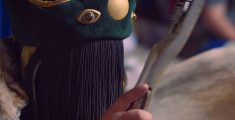


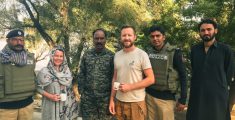
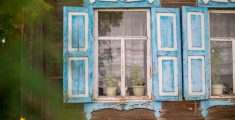
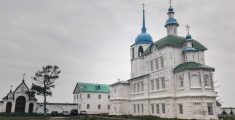

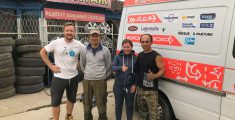
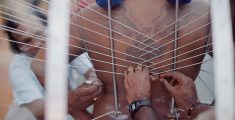
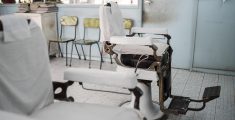
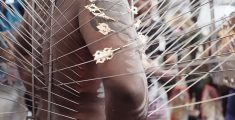


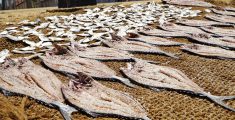




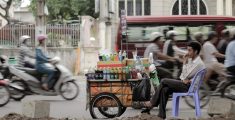
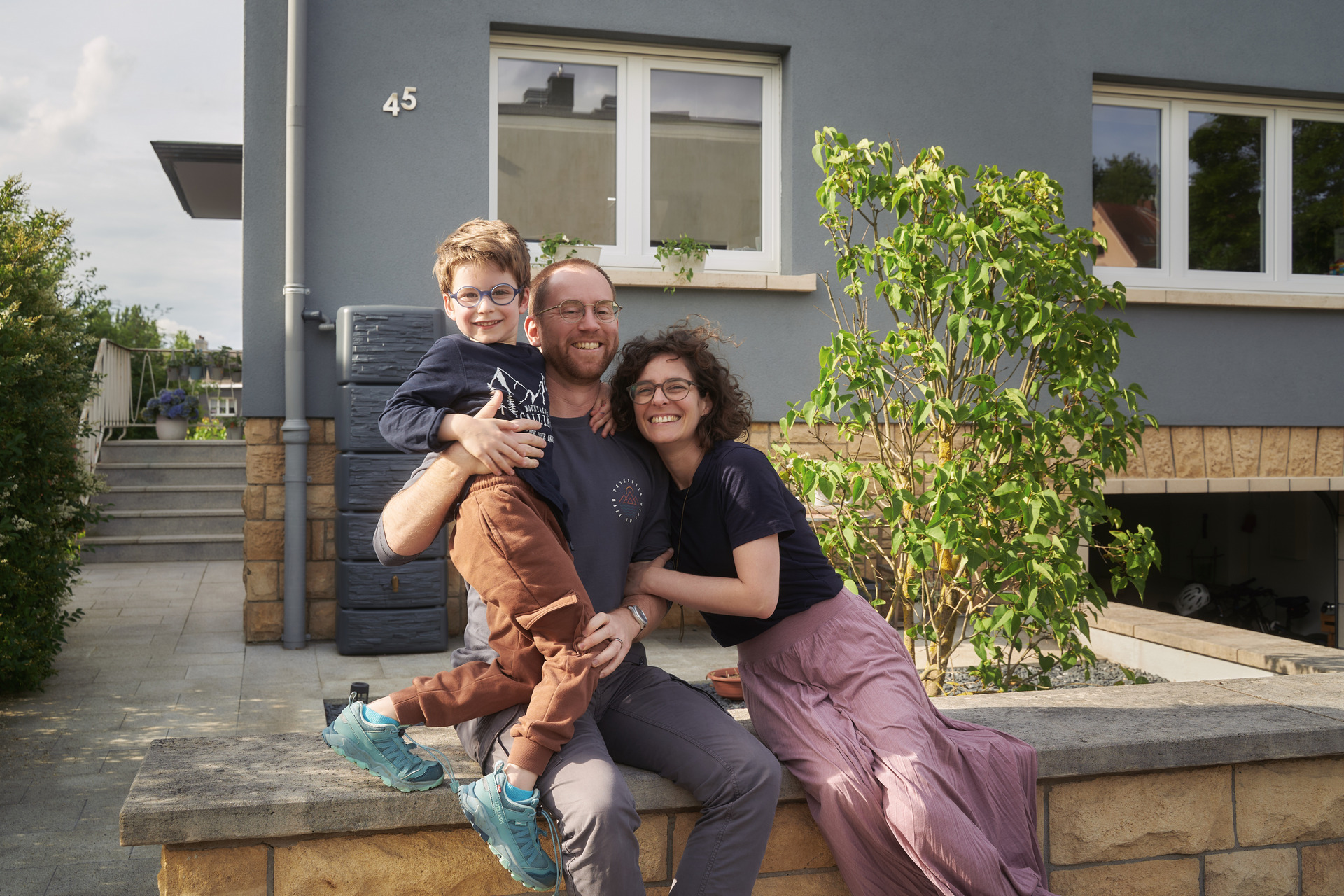
![[English below]
Trzydniowa Japonia w pigułce rozniosła nam głowy. Kilka lat później przeprowadziliśmy się do niej na sześć miesięcy. Kraj przez pół roku konsekwentnie i nieodwracalnie przepalał nam styki. Dlatego nie zdziwiliśmy się wcale, kiedy kilka lat później w Wołgogradzie po meczu Polska-Japonia kibice naszych rywali zabrali się za porządkowanie stadionowych trybun. Co kiedyś mogłoby wywołać uśmiech politowania i wymowny gest posuwisto-zwrotny palcem wskazującym w stronę czoła, dziś było tak oczywiste, że aż trzeba się było dołączyć. Wcale nas nie zdziwiło, że przed stadionem rzesze japońskich fanów gratulowało Polakom tak żarliwie, jakbyśmy wcale nie grali o pietruszkę. Przy tym wszyscy byli tak urzekająco szczęśliwi naszym… hmm… szczęściem, jakby sami właśnie wygrali puchar. Wymianom szalików, koszulek nie było końca. Andrzej wrócił chyba z trzema. W tym jedną vintage z rozgrywek w latach dziewięćdziesiątych ubiegłego wieku. Co prawda juniorska, ale przynajmniej na jedno z nas pasuje.
-----
Three-day Japan, in a nutshell, blew our minds. A few years later, we moved in there for six months. The country has been consistently and irreversibly frying our brains for half a year. That's why we weren't at all surprised when, a few years later, in Volgograd, after the Poland-Japan match, our rivals' fans started cleaning up the stadium stands. What once might have caused a smile of pity and a back-and-forth gesture with the index finger towards the forehead was now so obvious that we had to join in. We were not at all surprised that in front of the stadium, crowds of Japanese fans congratulated the Poles as passionately as if we were not playing for honour at all. And everyone was so charmingly happy with our… hmm… victory as if they had just won the cup themselves. There was no end to the exchange of scarves and T-shirts. Andrzej came back with at least three, including one vintage from the 1990s. It's a junior size, but it fits at least one of us.](https://www.peryferie.com/wp-content/plugins/instagram-feed/img/placeholder.png)